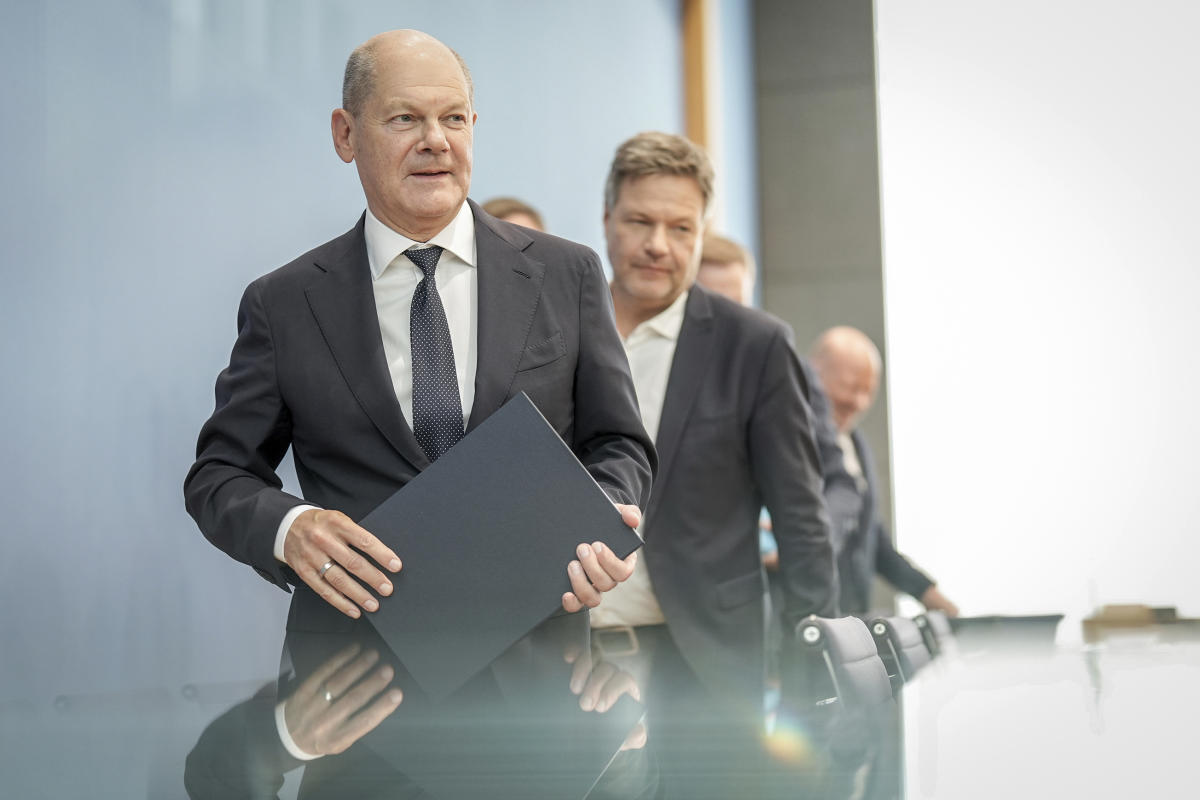BERLIN (AP) — The German government said Friday it has reached a deal on its 2025 budget and a stimulus package for Europe’s largest economy, ending a months-long row that threatened to topple Chancellor Olaf Scholz’s center-left coalition.
Scholz, a Social Democrat, and leaders of the Free Democrats and Greens agreed on plans including higher defense spending and affordable housing after marathon talks that lasted into the early hours of Friday. Scholz said ministers would formally approve the plan at a cabinet meeting later this month.
By balancing security, social cohesion and economic growth, Scholz said the budget is designed to reassure citizens unsettled by the war in Ukraine, the impact of climate change and illegal migration, and to offer an alternative to the “divisive” policies of far-right parties gaining popularity across Europe.
“We don’t need an ‘either-or’ policy,” Scholz said. “We need support for Ukraine and stable pensions, the modernization of industry and affordable energy, a strong military and good roads and stable bridges.”
Scholz replaced long-serving conservative Chancellor Angela Merkel after the 2011 federal elections. He led a coalition built around a program for modernization and digitalization in areas such as climate protection, infrastructure and research.
To cover the costs, the government circumvented rules limiting government borrowing by repurposing 60 billion euros ($65 billion) in unspent emergency loans obtained for measures to mitigate the impact of the COVID-19 pandemic.
But that maneuver was declared illegal by the Federal Constitutional Court in November 2023, after which the government rushed to implement cuts in everything from agricultural subsidies to development aid.
The shortages have split the Social Democrats and the financially conservative Free Democrats and the environmentally conscious Greens, who have called on parliament to suspend the so-called ‘debt brake’ and allow more emergency loans, including continued support for Ukraine in its war with Russia.
The disagreements have led to speculation that the already unpopular government could fall and early parliamentary elections could be held, with Germany following other European countries in a political shift to the right.
Opposition leaders said Friday they were skeptical of the government’s budget calculations, particularly its ability to fund a large defense budget, and predicted coalition partners would again squabble over the details.
Friedrich Merz, Merkel’s successor at the helm of the Christian Democratic Union, dismissed the deal as “a truce for an exhausted coalition. … When we return from the parliamentary recess in September, that’s when the discussions will really start.”
However, Scholz said coalition leaders had drawn up a budget that took into account borrowing limits while still funding priority areas for all three parties.
To support economic growth, the government wants to create investment incentives. This can be done by allowing companies to write off the value of their assets more quickly, supporting research and development, cutting red tape and promoting the development of renewable energy.
Scholz also said the government would continue to meet NATO’s target of spending at least 2% of GDP on defense, even after his defense minister failed to push through a steeper increase. Germany is Ukraine’s second-largest arms supplier after the United States.
“Germany must be an anchor of stability in Europe,” he said. “As a country at the heart of the continent with strategic importance, economic power and political weight, we must not turn away from the world.”
